Celebrating 20 Years of the Salmon Celebration September 13-14, 2025
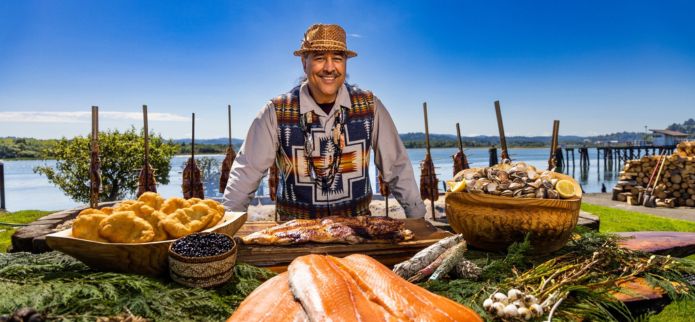
If you don’t honor the sacrifices made on your behalf, the resources you count on may not be there for you in the future. - Coquille Indian Tribe Chief, Jason Younker
In the spirit of the salmon’s return upstream, the Salmon Celebration will once again return to Oregon’s Adventure Coast: Coos Bay, North Bend, and Charleston, marking its 20th year since local Indigenous communities first opened this sacred tradition to the public in 2005. At a time when many feel disconnected from nature and ancestral roots, Coquille Indian Chief Jason Younker sees the celebration as a remedy.
“The Salmon Celebration replicates our first Salmon Ceremony,” he explains. “The more people who understand the importance of salmon to Oregon Coast tribes, the more it fosters environmental stewardship.”
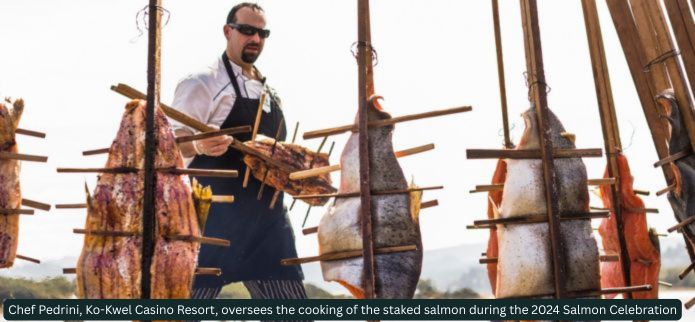
Known for its traditional open-pit salmon bake, canoe racing, Native American arts, dance, music, and cultural activities, the Annual Salmon Celebration will take place September 13–14, 2025, at the newly rebranded Ko-Kwel Casino Resort Coos Bay (formerly The Mill Casino Hotel & RV Park). In this post, we’ll explore not only the history of the celebration but also the reasons behind it and the enduring significance of salmon to tribes across Oregon.
A Rich History of Indigenous People on Oregon’s South Coast
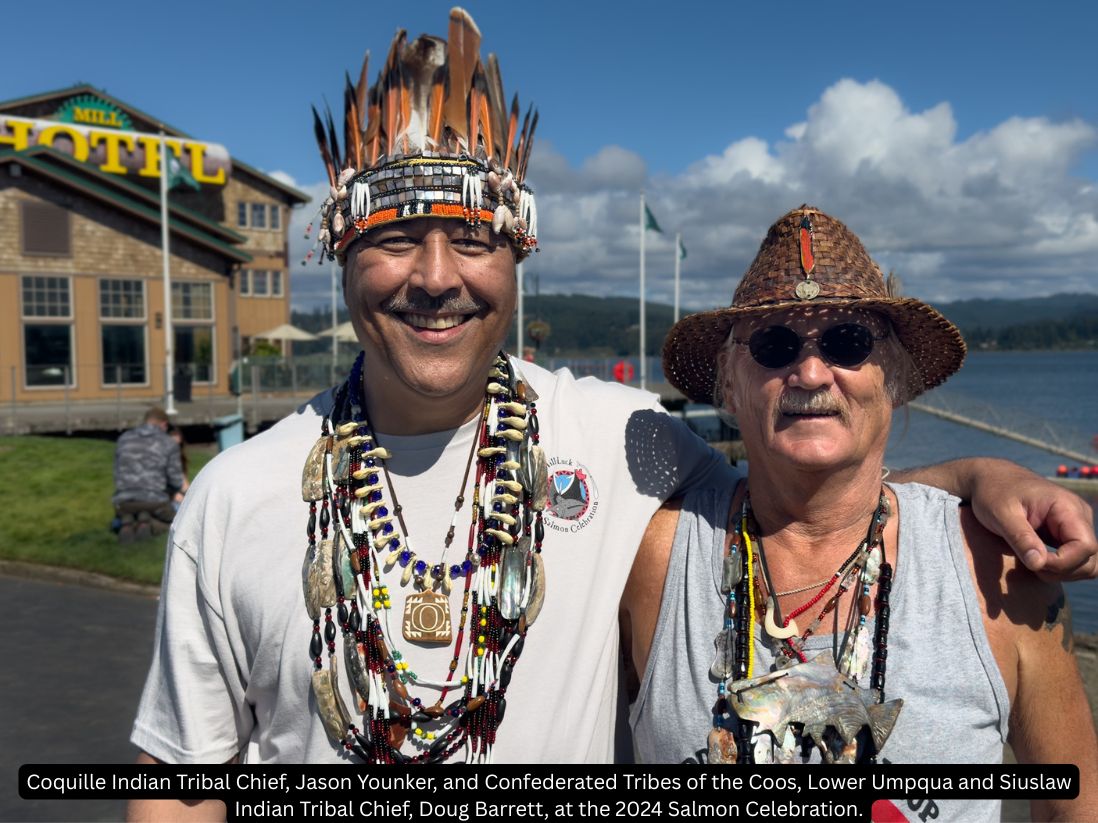
Oregon’s Adventure Coast: Coos Bay, North Bend, and Charleston is home to the Coquille Indian Tribe (pronounced “ko-kwel”) and the Confederated Tribes of Coos, Lower Umpqua, and Siuslaw Indians —two of Oregon’s nine federally recognized Tribes. The Coquille people have lived here for thousands of years, sustained by a deep connection to the land, rivers, and sea.
For Indigenous communities across the Pacific Northwest, salmon have long been a symbol of abundance, balance, and ecosystem health. Generations depended on its return not only for nourishment but as a sacred reminder of reciprocity with the natural world. Industrial logging in the late 1800s, however, devastated rivers and salmon habitat, threatening this essential lifeway.
Today, the Coquille Indian Tribe stewards more than 10,000 acres of sustainable forest, invests in community well-being, and leads restoration efforts to protect salmon and other first foods. Through the annual Salmon Celebration, the Tribe shares this legacy, teaching that the salmon’s importance goes far beyond food. Each year, members return the bones of the first-caught salmon to the waters — an act of gratitude that honors sacrifice and reaffirms their enduring bond with the natural world.
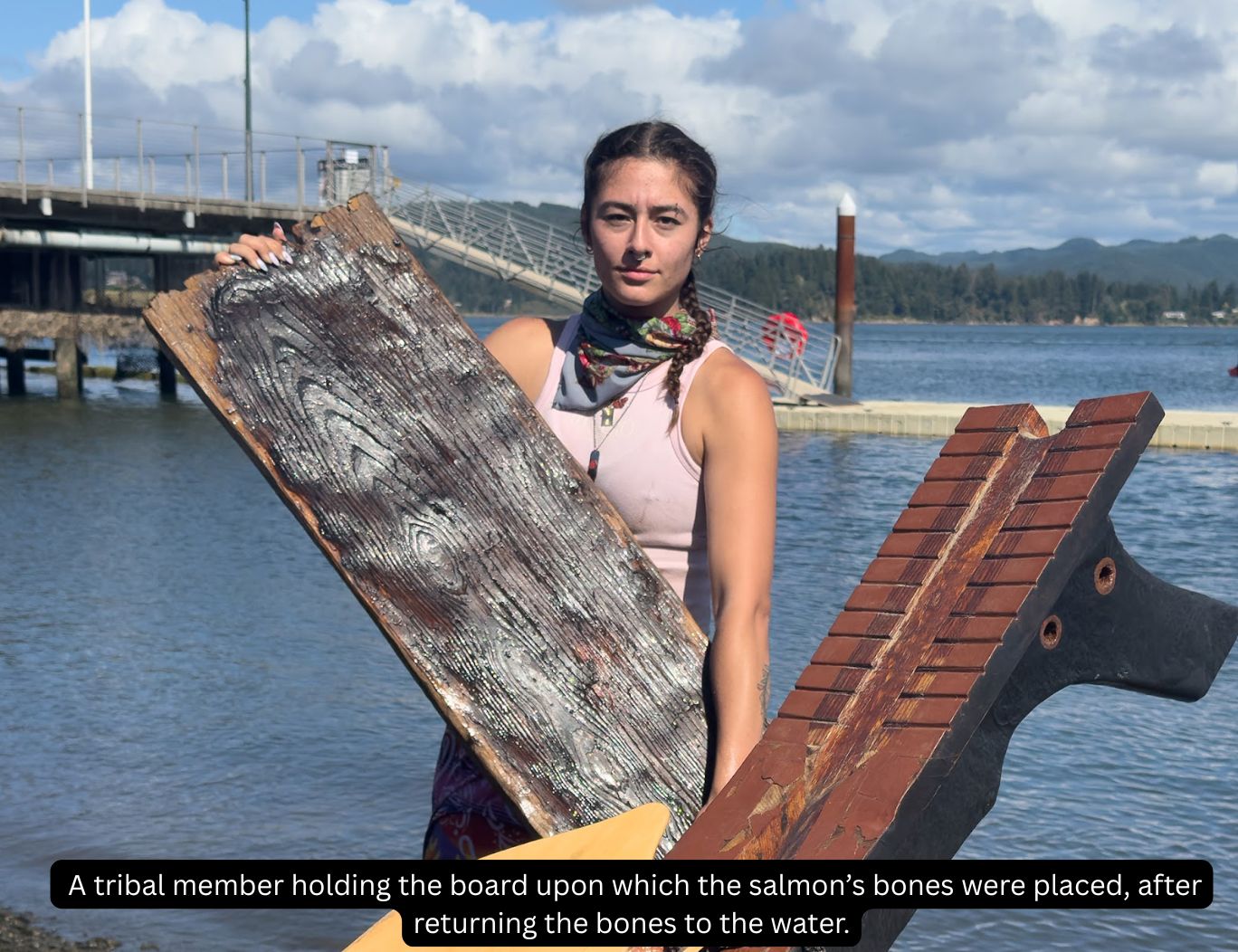
A Look Back on 20 Years of the Salmon Celebration
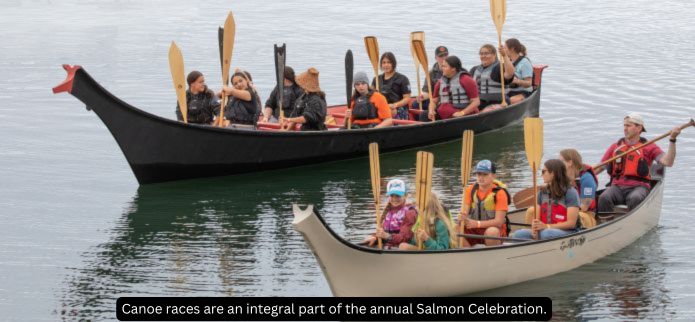
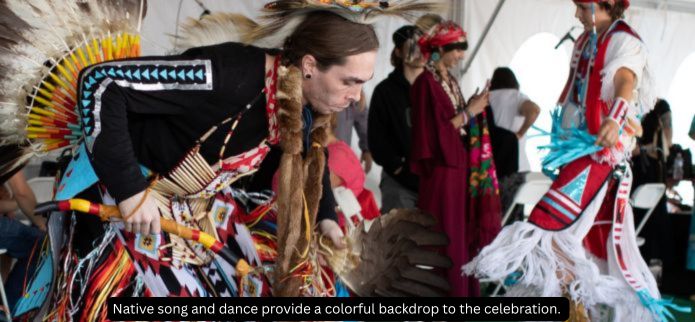
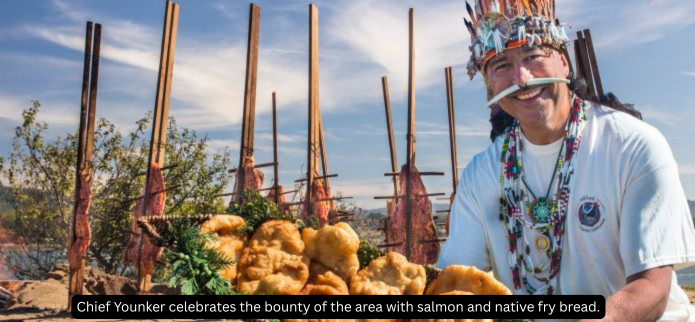
Chief Jason Younker , featured in the short video below about the origins of the Salmon Festival, is a University of Oregon faculty member who grew up along Coos Bay’s South Slough. He holds three graduate degrees, including a doctorate in cultural anthropology, and serves as chair of the board for Oregon’s Chemawa Indian School. He is also the past president of the Association of Indigenous Archaeologists. Since the Salmon Celebration was first opened to the public in 2005, Chief Younker has taken part as a cook in the traditional open-pit salmon bake—a role he learned by watching his father.
This year will be especially meaningful as he is joined by his daughter, niece, and nephew, who will learn the sacred details of preparing the salmon, from tending the fire to the timing of the roast, and the returning of the bones.
Chief Younker recently sat down with us to share his reflections on the history of the Salmon Celebration. What stood out most was not only his reverence for the sacred traditions, but also the camaraderie and humor he recalled—from the playful pranks shared among teammates to the joy of working together. The Salmon Celebration, at its heart, is a family affair where everyone is invited to take part.
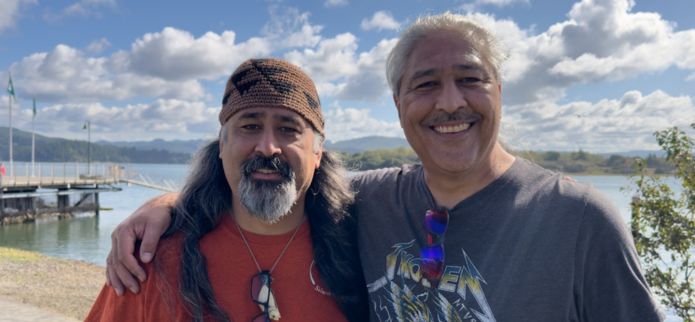
Chief Jason Younker pictured above with his brother, Shirod Younker, who oversees the canoe races during the annual Salmon Celebration. A well-known Pacific Northwest artist, Shirod has also designed the artwork featured on the event’s T-shirts and posters for the past 20 years.
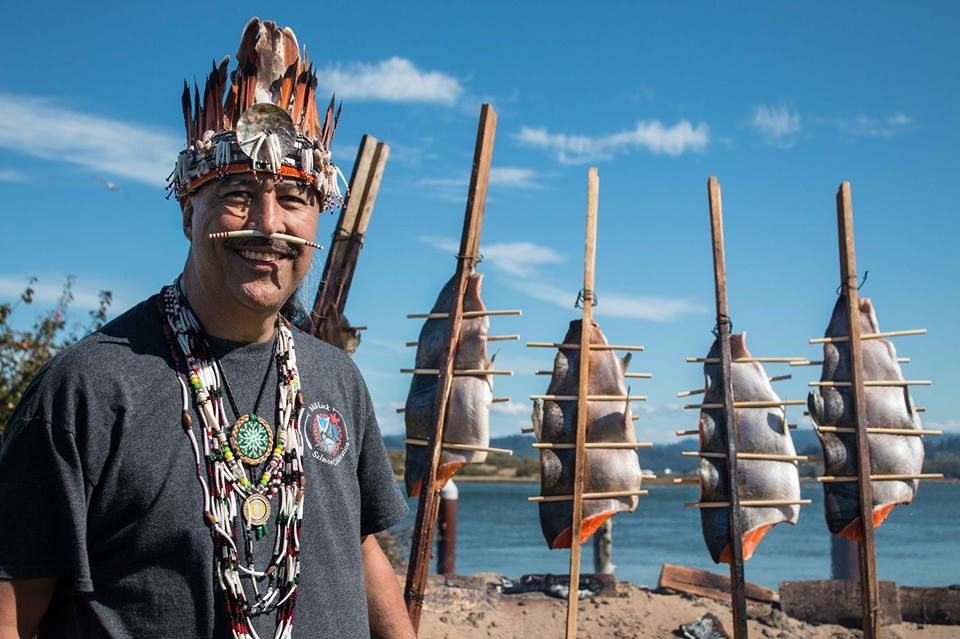
When asked about the origins of that first Salmon Celebration in 2005, here is what he had to say:
Can you share the story of how the Salmon Celebration began and what inspired the Coquille Indian Tribe to create it?
The Salmon Celebration replicates our First Salmon Ceremony, which is a widely practiced tradition for all salmon cultures. Of course, traditions for different tribes have variations. For us, when the first salmon enters the mouth of the Coquille River in the early spring, we catch only one salmon and cook it in the ground.
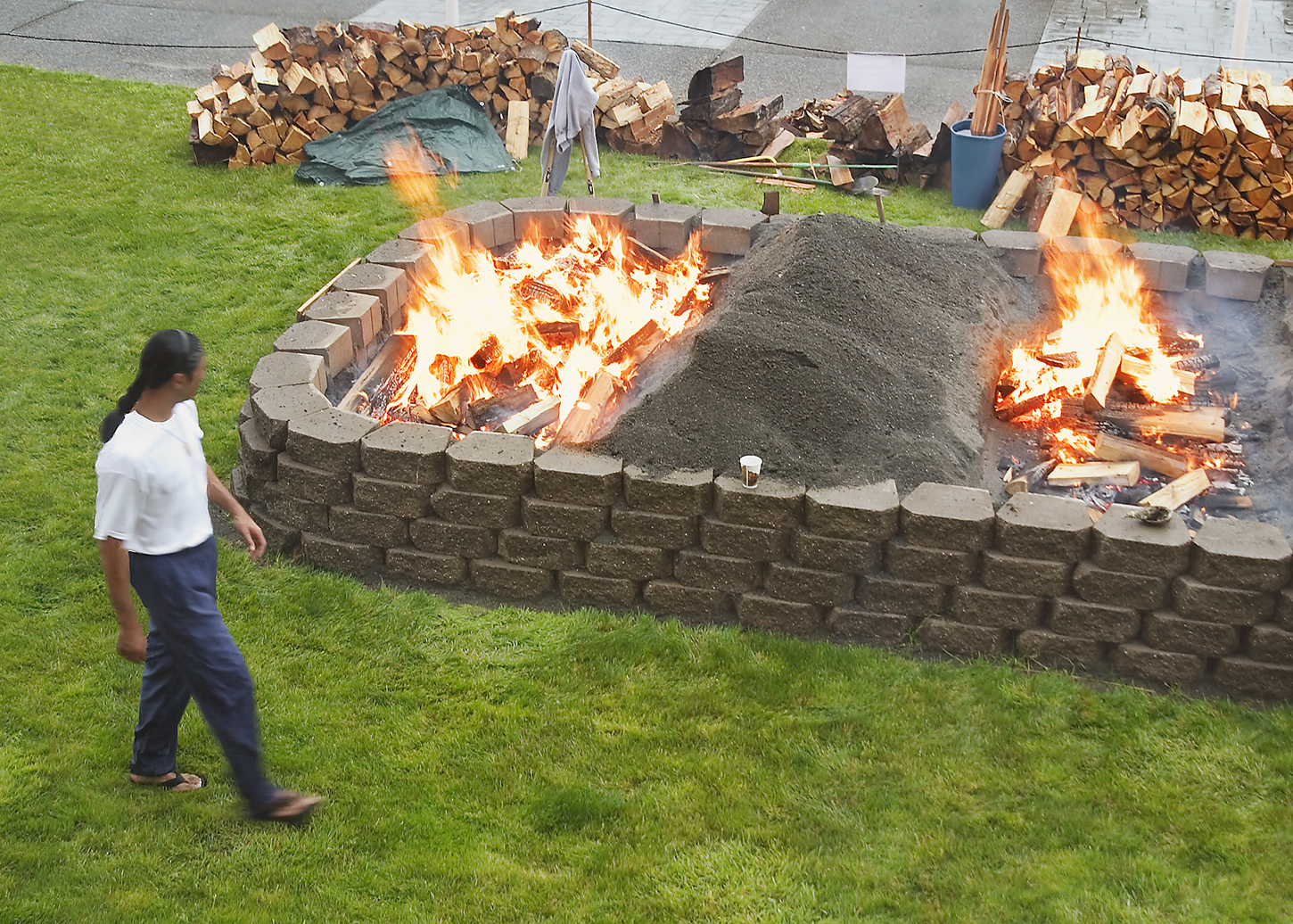
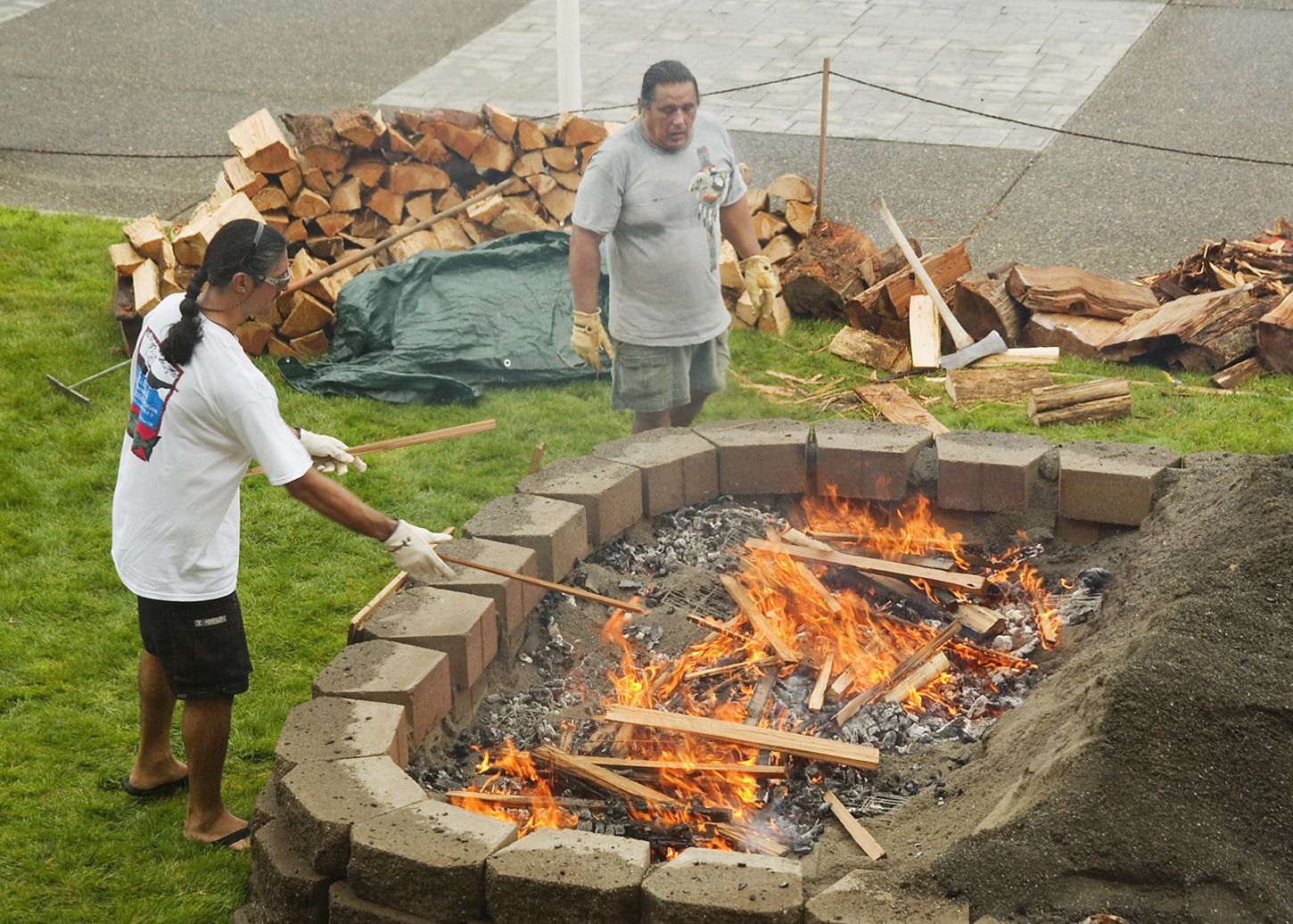
Thousands of salmon pass while we cook the first salmon. Smoke from the first fire alerts all villages up the river, letting them know that the first returning salmon are soon to arrive (the first fire is like a signal fire). Each village follows the same practice, cooking only one salmon while letting the other early returners pass up the river. Eventually, each village will have cooked the first salmon they catch. They share the flesh with all who have gathered.
The remaining salmon bones are carefully placed back in the river to let our salmon cousins know that we have respected their sacrifices. Once the ceremony is complete, then we go fishing!! Not only does the ceremony honor the salmon’s sacrifice, but it’s also important to give thanks for the resources we depend upon. If you don’t honor the sacrifices made on your behalf, the resources you count on may not be there for you in the future. Additionally, by only catching one salmon initially and cooking it for about 2 hours, you will have allowed the salmon that are genetically programmed to return early a chance at the best spawning grounds…and they will return early next year.
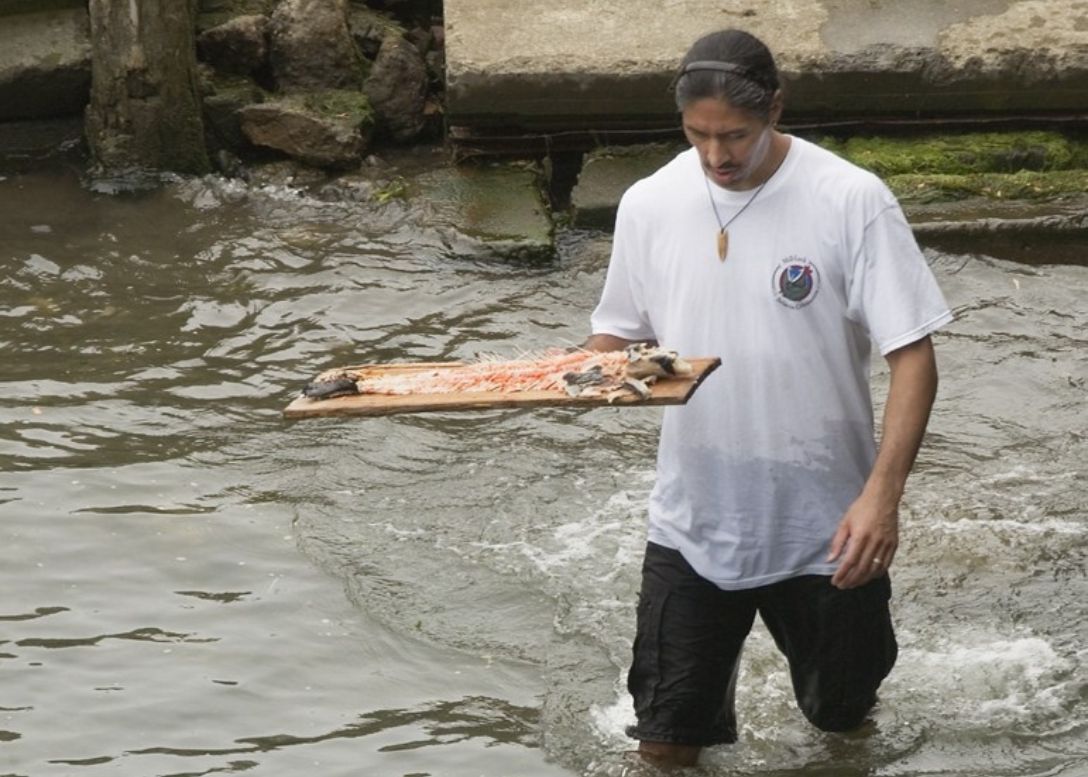
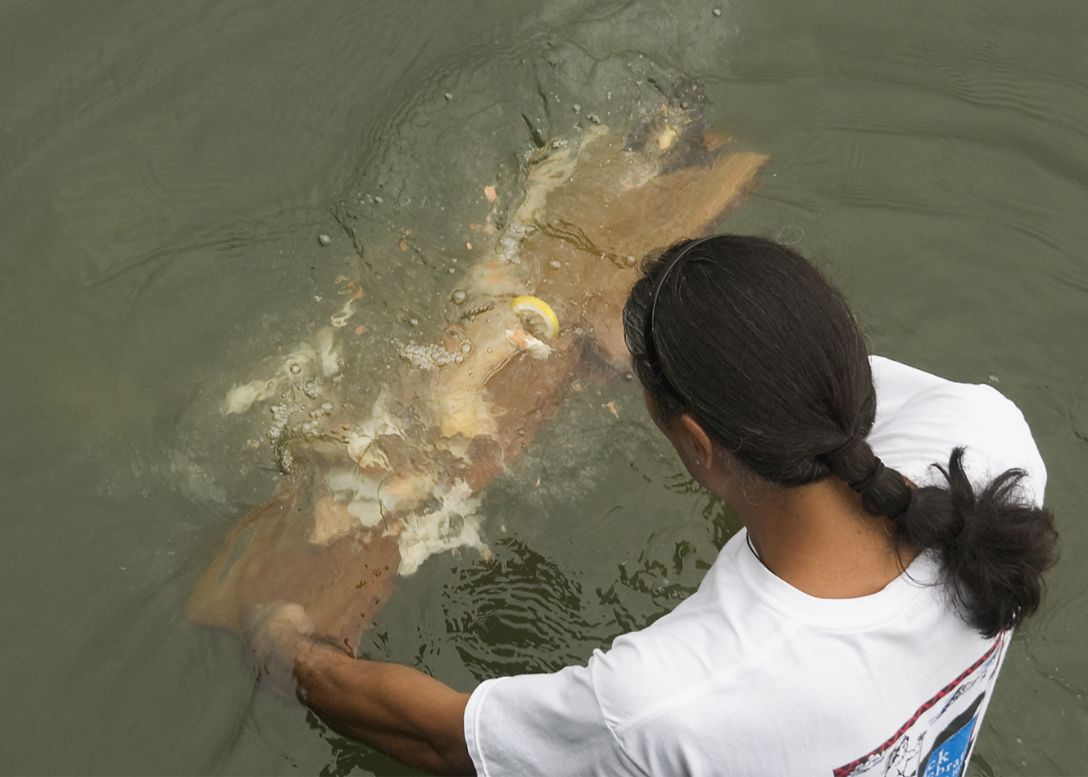
Looking back to the first celebration, what were some of the biggest challenges and proudest moments from those early days?
I can’t remember what year. I had to oversee the building of the salmon pit. The KoKwel Resort/Casino’s salmon pit is an above-ground pit filled with salmon. In traditional settings, the salmon pits would be in the longhouse and maybe another outside. There are two ways to traditionally cook salmon: skewered (staked over the fire) and in an earthen oven (under coals and sand).
It takes about 45 minutes to cook a skewered salmon filet. It takes 2 hours to cook a 16-20 lb salmon under the sand. We had so many guests, many more than we expected, that we were cooking nonstop!!! We received many compliments on our cooking. Many said that they never really liked salmon until they tasted ours. When you have 10,000+ years of salmon cooking experience, this should be expected! Many guests were in awe of the salmon and canoe races.
Why has it been important to the Tribe to hold the Salmon Celebration every year for the past two decades, and how has that purpose evolved over time?
The Salmon Celebration has truly become the single most important public event we host to feature Coquille culture to a non-tribal public. We have encountered numerous challenges, ranging from underestimating the number of guests to overcoming inclement weather. When cooking outside with fire, you need decent weather, not a torrential downpour! One year, it rained from about 5:00am-11:00am. I could barely keep the fire lit, let alone build up enough coals/heat. At 11:00, the clouds broke, and it was a gorgeous day.
Another challenge: we purchase our salmon from our tribal fishing friends at the Columbia River Intertribal Fish Commission. To help control for cooking time, we would always request 16-20 lb salmon. I know quite a few tribal fishermen, and as a joke, they would throw in a 50-75-pound lunker! They were always trying to mess up my cook time!! What has changed over time is the increase in both tribal and non-tribal public attendance.
In what ways has the event helped to educate the public about the Coquille Tribe’s history, traditions, and relationship with the land and water, and the history and traditions of the other Oregon tribes that participate?
Over time, I think the non-tribal public is beginning to recognize that the history/culture of the Coquille Tribe has been greatly misunderstood. When ethnographers first witnessed the First Salmon Ceremony, they thought it was simply a tribal ceremony. It’s much more than that. It’s a ceremony to recognize the sacrifices made on our behalf. It’s a ceremony that helps the early returning salmon to spawn. The ceremony itself is a good example of effective fish/wildlife management. The Salmon Celebration is a public gathering where indigenous cultural knowledge can be shared.
Has the celebration strengthened the bond between the Coquille Tribe and the wider community on Oregon’s South Coast?
Absolutely! Where else in the world can you get salmon prepared by those who have 10,000 years of experience? You can’t help bond with those who have been fed well.
What parts of the celebration are the most meaningful to you personally, and are there traditions within the event that have remained unchanged since the beginning?
I think I have cooked for the Salmon Celebration each year with the exception of a couple of years. I have always included the Coquille youth in the cooking process. (It’s easier when you have younger help!) Our youth learn how to cook salmon and then are also responsible for returning the bones to the river. Having the Coquille youth as assistants is a blessing. Some day I won’t be able to cook, and we need trained salmon cooks. Passing on this experience is probably the most meaningful.
About the Salmon Celebration
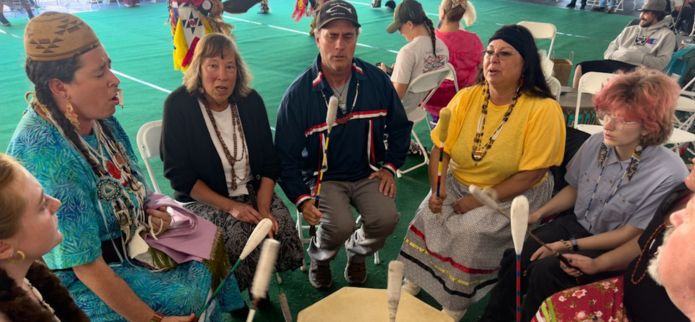
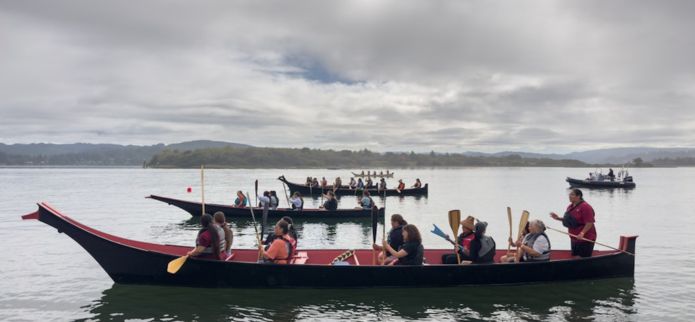
The annual Salmon Celebration is a free outdoor festival celebrating the heritage, culture, and traditions of the Coquille Indian Tribe and other Pacific Northwest Tribes, with residents and visitors to Oregon’s Adventure Coast: Coos Bay, North Bend, and Charleston. Here are some of the details:
- Dates & Times: Saturday, September 13, 2025, 10:00 AM – 5:00 PM & Sunday, September 14, 2025, 11:00 AM – 4:00 PM
- The festival is free and open to all, though tickets must be purchased for the Traditional Salmon Bake, served from 11 AM–5 PM on Saturday and 11 AM–4 PM on Sunday.
- Presale tickets for the Salmon Bake Meal are available in Ko-Kwel Gifts and include a commemorative Salmon Celebration tee shirt (while supplies last). Guests may also purchase their meal at the meal tent during the event.
- Festivalgoers can enjoy free daily performances by Native American storytellers, drummers, flutists, and dancers, along with a marketplace of traditional wares and foods, bay-front canoe races, games, and cultural demonstrations and exhibits for all ages.
- Click here for event schedule , including canoe race details and Salmon Bake Dinner ticket information.
Visitors to Oregon’s Adventure Coast: Coos Bay, North Bend, Charleston can learn more about the Coquille Indian Tribe at the Coos History Museum . Ko-Kwel Gifts inside Ko-Kwel Casino Resort Coos Bay is open to the public and features an exquisite selection of art, jewelry, and other handmade goods by members of the Tribe.
Learn more about the indigenous people of Southwest Oregon:
Guide to Tribal Nations on Travel Oregon
Oregon Tribal Spotlight: Coquille Indian Tribe
Oregon Tribal Spotlight: Confederated Tribes of Coos, Lower Umpqua, and Siuslaw Indians
Celebrate Oregon’s Indigenous Foods
The Case of the Missing Canoes
Tribal Heritage - The Coquilles
Tribal Heritage - Confederated Tribes of the Coos, Lower Umpqua, and Siuslaw Indians
September is a wonderful time to visit Oregon’s Adventure Coast: Coos Bay, North Bend, Charleston, so bring the whole family for a wonderful weekend of fun!Visit our lodging page to search through the great options of hotels and inns in the area. For more travel inspiration, visit our Adventures page and our Trip Ideas page to discover all there is to do on Oregon’s Adventure Coast, or request a visitor’s packet today !
